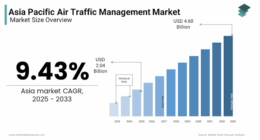Rising Health Issues from Poor Diets
Unhealthy Eating Habits Fuel Chronic Diseases
Thailand faces a growing public health crisis driven by poor dietary choices, with increasing rates of obesity, diabetes, and heart disease. The shift toward processed foods, high in sugar and fat, has overwhelmed healthcare systems. These preventable conditions burden hospitals and clinics, diverting resources from other critical services and highlighting the urgent need for dietary reform.
Economic Toll of Unhealthy Eating
Dietary Choices Undermine Productivity
Unhealthy diets are not just a health issue but an economic one, reducing Thailand’s workforce efficiency and growth potential. Chronic illnesses linked to poor nutrition lead to higher absenteeism and lower productivity. The economic cost of treating diet-related diseases drains public funds, slowing infrastructure development and limiting Thailand’s competitiveness in the global market.
Cultural Shifts in Food Consumption
Moving Away from Traditional Diets
Thailand’s traditional cuisine, rich in vegetables, herbs, and lean proteins, is being overshadowed by fast food and sugary snacks. Urbanization and busy lifestyles have fueled reliance on convenient, unhealthy options. This dietary shift threatens long-term health outcomes and erodes cultural food practices, prompting calls for campaigns to revive balanced, traditional eating habits.
Healthcare System Under Pressure
Struggling to Cope with Diet-Related Illnesses
The surge in diet-related illnesses has stretched Thailand’s healthcare infrastructure to its limits. Hospitals face rising patient numbers, longer wait times, and increased costs for specialized treatments. Strengthening preventive measures, such as nutrition education and stricter food regulations, is critical to easing this strain and ensuring sustainable healthcare delivery for all Thais.
Path to Healthier Futures
Promoting Nutrition for Economic Resilience
Addressing Thailand’s dietary crisis requires a multi-faceted approach, including public awareness campaigns, school nutrition programs, and incentives for healthier food production. By prioritizing nutrition, Thailand can reduce healthcare costs, boost workforce vitality, and drive economic growth. A healthier population will strengthen the nation’s foundation, fostering prosperity for generations to come.









